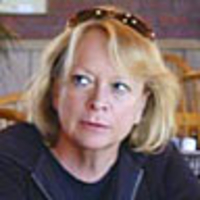The yearlong process by which 24 board members of the National Book Critics Circle read, discuss, evaluate, and select books as finalists, and then vote for winners in six categories, is rigorous, demanding, sometimes exhilarating, and often fraught. (The last is to be expected when you have a standing jury of two dozen opinionated individuals who are trained to deliver withering phrases and acid asides as fluently as enthusiastic praise.)

Unlike other literary prizes, the NBCC awards aren’t based solely on publisher submissions, or judged by a rotating panel of a few. The 24 board members nominate promising books themselves, with some input from NBCC members. (Publishers submit by sending books to all 24 board members.) Jurors are obliged to recuse themselves in the case of conflicts of interest. Each year, thousands of books in six categories—autobiography, biography, criticism, fiction, nonfiction, and poetry—come up for consideration.
This year’s National Book Critics Circle awards finalists will be announced January 22 at WNYC’s Greene Performance Space, by a group of past winners and finalists including Joan Acocella, Jason Epstein, Annette Gordon-Reed, Zadie Smith, Carolyn Forche, Honor Moore, Blake Bailey, and Stephen Burt.
In the weeks after that, each board member is responsible for reading all 30 finalists to prepare to vote for the six winners, which will be announced on March 10 at the New School.
The NBCC awards have from the beginning carried the cachet of being judged by the critics themselves. John Ashbery, winner of the NBCC’s first poetry award in 1976 for Self-Portrait in a Convex Mirror, noted the NBCC’s award inevitably means more to a writer than one chosen by a handful of judges; he said the award served to “jump-start” his “somewhat sagging career as a poet.”
In the mid-1970s, the NBCC’s founding members, John Leonard, Nona Balakian, Barbara Bannon, Eliot Fremont-Smith, Peter S. Prescott, Ivan Sandrof, and others, gathered at the Algonquin to savage or champion the writers of their times. Reminiscences from the 1980s are filled with references to Elizabeth Hardwick. (One former board member noted that she claimed at one point that to choose between two particular books was akin to “voting between a flea and a louse.”)
Today the NBCC board is fueled more by caffeine than alcohol. The yearlong deliberations occur mostly online, with three mostly civil, occasionally contentious in-person board meetings a year.
The NBCC’s current 24 awards judges are all working reviewers or book editors with wide-ranging interests and tastes. They reflect a national membership: Cambridge, Chicago, Cleveland, Kalamazoo, Los Angeles, Philadelphia, San Antonio, Seattle, and Washington, D.C., as well as, of course, New York. They assign or write reviews for publications including The New York Times, the Los Angeles Times, Chicago Tribune, Cleveland Plain Dealer, El Paso Times, Library Journal, Publishers Weekly, the Seattle Times, NPR.org, The Daily Beast, Bookforum, Salon, and the Chronicle of Higher Education. In my five years on the board, I’ve come to see them as variously passionate, poetic, brilliant, strong-willed, sly, principled, thoughtful, coaxing, and laugh-out-loud funny.
John Leonard: “Of course there is an American literary establishment. It consists of those magazines and newspapers most of us read, the people who write for them and the clerks who edit them.”
The confidential awards nomination and voting process begins at the first meeting of the new board in March. Awards committee chairs in all six categories are elected and committees of at least eight members are formed. Throughout the rest of the year, committee members nominate books on a password-protected online Writeboard, and discuss them on dedicated email listservs. The conversation ebbs and flows through the summer months.
The afternoon of the September board meeting is devoted to the first discussions of the books, led by committee chairs. It’s not breaking any rules to suggest that the words one hears include these: “Formulaic.” “Doggerel.” “Brilliant.” “Thin.”
By November the listservs are buzzing with discussion. The last book orders are placed in December, and longlists of 10 (and sometimes up to 15) favorites are teased out by early January. The longlists are whittled down to shortlists of five during the intense all-day January board meeting. Harried board members arrive, sometimes late, at the finalists announcement ceremony directly from that meeting.
Between January and the March awards ceremony, reviews of all finalists by board members are posted on Critical Mass, the NBCC blog, in the “30 Books in 30 Days” series.
This literary marathon ends with the board gathering on the afternoon of the awards ceremony (March 10 this year) to vote for winners in each category. Deadlines rule. The final award discussions are usually congenial, but that doesn't mean that all board members arrive or depart in agreement. In virtually every category it’s common for more than one book to have strong supporters, leading to fierce and focused critical debates, occasional quoting from texts, a bit of voice raising (not exactly qualifying as shouting), and much jockeying for the floor, especially in advance of tie-breaking votes. Those board members who have not read all finalists in a category abstain.
During my first year on the board, I was fascinated as, during the penultimate discussion of the day (the award was fiction), after much back and forth and a number of ballots tallied, and two plates of chocolate chip cookies, one board member leapt to his feet and declared, "I won't take long. I want to speak briefly about the typology of the novel."
Out of it all, winners emerge. Most everyone is alert to the fact that literary reputations can be made by awards like this. ( There’s a list of all past finalists and winners)
It’s hard work, buffered by the excitement of discovering new voices and identifying merit, and the bracing heat of hours of passionate literary argument. Just in case I haven’t mentioned it, it’s sublime fun.
A final note. For the authors, agents, editors, publishers and fellow critics who might feel their own favorites have been neglected, there is some consolation in the words of 2006 NBCC Sandrof lifetime achievement award winner and founder John Leonard: “Of course there is an American literary establishment. It consists of those magazines and newspapers most of us read, the people who write for them and the clerks who edit them. The names of the players, however, change so quickly that this establishment couldn’t field a softball team, couldn’t conspire at tiddlywinks.”
Plus: Check out Book Beast, for more news on hot titles and authors and excerpts from the latest books.
Jane Ciabattari’s work has appeared in Bookforum,The Guardian online, The New York Times, Los Angeles Times, Washington Post, Columbia Journalism Review, among others. She is president of the National Book Critics Circle and author of the short-story collection Stealing the Fire. Recent short stories are online at KGB Bar Lit, Verbsap, Literary Mama and Lost Magazine.





